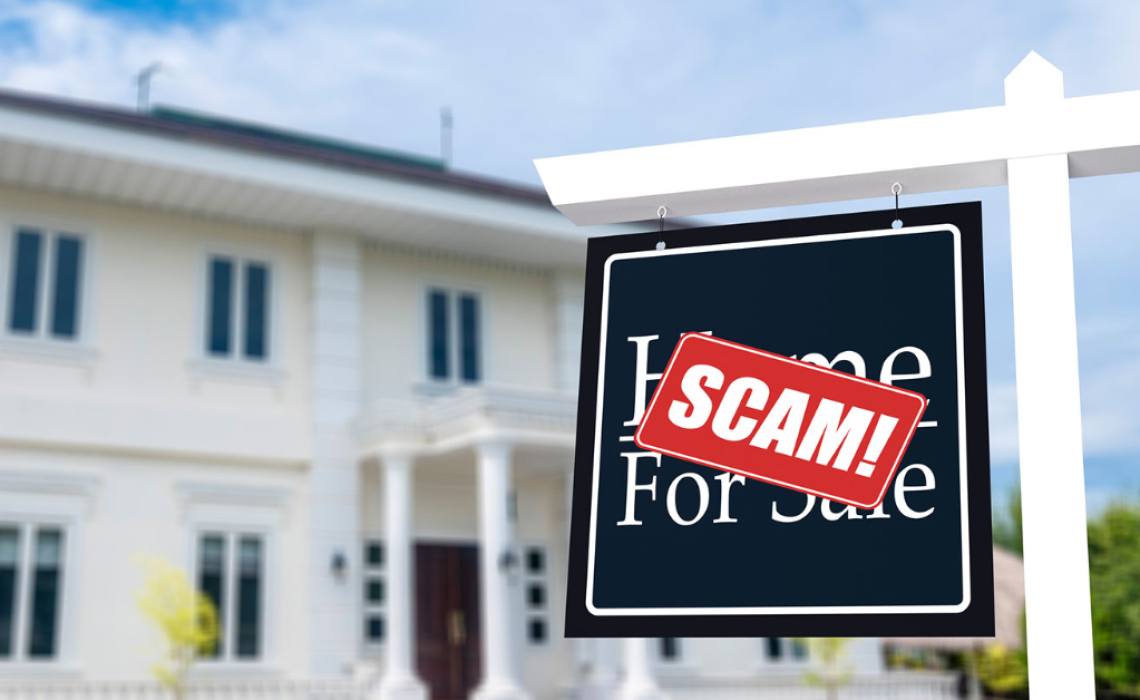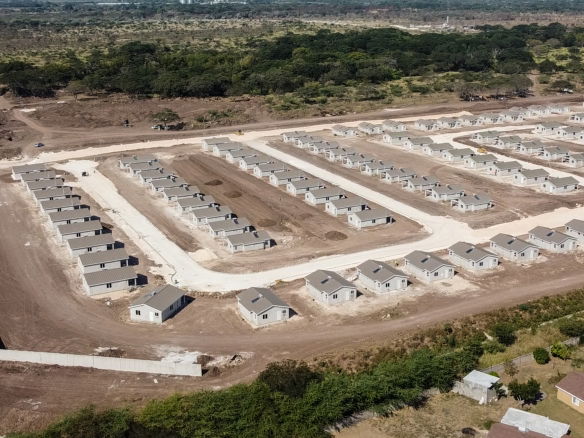The Jamaican real estate market, like many others across the world, provides a rich investment opportunity for both residents and tourists. Jamaica’s stunning beaches, tropical environment, and rich culture have drawn a large number of investors looking to buy property for vacation homes, rentals, or retirement. However, the market has faced some obstacles, particularly in terms of real estate fraud. Understanding the many types of real estate fraud and taking precautions to protect yourself can help you avoid financial loss and legal difficulties. In this post, we’ll look at 7 types of frequent real estate fraud in Jamaica and how you might prevent becoming a victim.
Table of Contents
1. Title Fraud
One of the most popular real estate fraud in Jamaica is title fraud, which occurs when fraudsters attempt to sell property that they do not legally own or have no authority to sell. This frequently includes falsifying documents such as titles, deeds, and transfer papers to make it look that they are the legitimate owner of the property.
Once the fraudulent transaction is completed, the fraudster vanishes, leaving the victim with no legal claim to the property they thought they had purchased. The fraudster fabricates a title or deed for a property they do not own, then presents the fabricated documents to a buyer who believes they are authentic. After accepting payment, the scammer vanishes, and the buyer later discovers that the title is invalid or belongs to someone else.
How to Protect Yourself:
- Conduct a title search through the National Land Agency (NLA) to verify the legitimacy of the property’s title.
- Hire a reputable attorney who will ensure that all documents are legitimate and help navigate the complexities of the transaction.
- Use licensed real estate agents or brokers who are registered with the Real Estate Board of Jamaica.
2. Fake Land Sales
Another prevalent real estate fraud in Jamaica is selling land that doesn’t exist or has already been sold to someone else. Fraudsters frequently target purchasers who are inexperienced with the local real estate market, promising a prime piece of land at a low price. In some circumstances, they may take advantage of non-residents who are unable to physically inspect the property. The fraudster advertises land for sale that does not exist or has been sold several times. They offer appealing discounts to potential purchasers, frequently accompanied by images and videos of the land. Once the buyer makes the payment, the fraudster vanishes, and the buyer realizes that the land was never for sale or belongs to someone else.
How to Protect Yourself:
- Never purchase land without personally inspecting it or having a trusted representative do so.
- Request detailed documentation, including survey diagrams, registered titles, and proof of ownership, and cross-reference these with the NLA records.
- Consult a local attorney who can help verify the land’s legitimacy and ensure that all necessary documents are in order.
3. Rental Scams
Another common real estate fraud in Jamaica is rental scams which target both tenants and landlords. These scams involve fraudsters appearing as landlords and renting out homes they do not own, or scammers pretending to be renters and offering to overpay before asking for a refund for the excess amount. With a growing demand for rental homes in tourist-heavy places such as Montego Bay and Kingston, these frauds are becoming more widespread.
In the case of tenants, the fraudster advertises a property for rent at an appealing price. They take deposits or complete rental payments from potential tenants, only to find out later that the property does not exist or is already rented. For landlords, the fraudster may pose as a prospective tenant and agree to rent the property, then send a check for more than the rental amount and ask the landlord to refund the excess. The check later bounces, leaving the landlord at a loss.
How to Protect Yourself:
- Always visit the rental property in person before making any payments.
- Confirm that the person renting the property is the actual owner or has authorization from the owner to lease it.
- Only accept payments via secure methods, such as bank transfers or certified checks.
4. Bogus Real Estate Agents and Developers
In Jamaica, unlicensed real estate salespeople and dishonest developers frequently prey on naive consumers, particularly those unfamiliar with the industry. These scammers may pose as reputable brokers or developers and offer “too good to be true” offers on new developments, land transactions, or homes. Victims sometimes lose substantial sums of money when scammers disappear or deliver poor, unfinished houses. Fraudsters falsely claim to represent respected real estate or construction enterprises. They provide bargains on homes or properties that require down payments or full payments upfront. After receiving the funds, they either deliver subpar or unfinished homes or vanish entirely.
How to Protect Yourself:
- Verify the real estate agent’s license with the Real Estate Board of Jamaica.
- If purchasing a property from a developer, visit the construction site to ensure that work is progressing as promised.
- Always ask for proof of the developer’s track record, including previously completed projects.
5. Mortgage Fraud
Mortgage fraud is another common real estate fraud. This happens when scammers pose as legitimate lenders or brokers and offer appealing mortgage conditions to prospective home purchasers. In some circumstances, the fraudster may trick the buyer into misrepresenting paperwork to secure a loan for which they are not eligible, or they may demand extravagant fees for services that are never performed. The fraudster offers appealing mortgage rates or terms, frequently claiming to have links to banks or financial organizations. They collect upfront fees or processing expenses from the buyer while promising to get the loan swiftly. After receiving the funds, the fraudster either disappears or presents false loan paperwork.
How to Protect Yourself:
- Only work with well-established, reputable banks or mortgage companies in Jamaica.
- Consult with a financial advisor or your real estate attorney to ensure the terms are legitimate.
- Be wary of mortgage deals that seem unusually favorable or require little to no documentation.
6. Wire Fraud and Phishing Scams
With the increase in digital transactions, wire fraud and phishing schemes have grown common in Jamaica’s real estate sector. In real estate fraud, fraudsters hack into email accounts or impersonate genuine parties in a real estate transaction (such as the buyer’s attorney or real estate agent) to deceive the buyer into wiring money to the wrong account. The scammer intercepts or impersonates legitimate email correspondence between the buyer, attorney, or real estate agent. They give the buyer bogus wire instructions, directing them to transfer funds to an account controlled by the scammer. Once the payments are transferred, the scammer vanishes, leaving the buyer with no way to collect the money.
How to Protect Yourself:
- Always verify wire transfer instructions with your attorney or real estate agent over the phone or in person.
- Use secure email services or encrypted communication platforms for discussing financial transactions.
- Be cautious of any changes in the email tone or content from your attorney or agent.
7. Squatting and Adverse Possession
Squatting, or the unauthorized occupation of land or property, is a major issue in Jamaica, especially in rural or underdeveloped areas. Some fraudsters take advantage of this by selling squatter-occupied land or encouraging purchasers to acquire land with the promise of eventually evicting the squatters. Squatters may be able to claim land rights under adverse possession rules if they have inhabited it for an extended period of time without the owner’s participation. The fraudster offers land that is inhabited by squatters without alerting the buyer about the condition. The buyer later learns that evicting squatters is a lengthy and complicated legal process. In some circumstances, squatters may claim ownership of the land.
How to Protect Yourself:
- Always inspect the land before purchasing it to ensure it is free from squatters or other unauthorized occupants.
- Ask your attorney to investigate the property’s history, including any ongoing disputes or claims of adverse possession.
- Ensure that the seller has initiated the legal eviction process if squatters are present on the land.
Protecting Yourself from Real Estate Fraud in Jamaica
Jamaica’s real estate market has enormous promise, but it also carries numerous risks, particularly for buyers unfamiliar with local laws and customs. Real estate fraud can cause significant financial losses, legal fights, and emotional distress. By being aware of the most typical real estate fraud, completing rigorous due diligence, and dealing with competent professionals, you may dramatically lower your chances of falling victim to fraud.
Here are some final tips to protect yourself:
- Always verify documentation.
- Work with licensed professionals.
- Don’t rush the process.
- Report suspicious activity.
By staying vigilant and informed, you can safely navigate Jamaica’s real estate market make secure, profitable investments,, and avoid this common real estate fraud.
FAQs
1. What are the most common real estate fraud in Jamaica?
Common real estate fraud in Jamaica includes title fraud, fake land sales, rental scams, bogus real estate agents and developers, mortgage fraud, wire fraud, and issues related to squatting and adverse possession. Each of these scams preys on unsuspecting buyers or renters, leading to financial loss and legal complications.
2. How can I verify the legitimacy of a property title?
To protect yourself from real estate fraud, you must verify the legitimacy of a property title, and conduct a title search through the National Land Agency (NLA). This search will reveal the current owner of the property and any encumbrances or liens against it. Additionally, it’s advisable to work with a qualified real estate attorney who can assist in verifying the title and ensuring all documents are legitimate
3. What should I do if I suspect I’ve been a victim of a real estate scam?
If you suspect you’ve been a victim of a real estate fraud, you should immediately contact your attorney and report the incident to the relevant authorities, such as the police and the Real Estate Board of Jamaica. Document all communications and transactions related to the scam to aid in any investigation or legal action.
4. How can I protect myself when renting a property in Jamaica?
To protect yourself from real estate fraud when renting a property in Jamaica, always visit the property in person before making any payments, confirm the identity of the landlord, and request proper documentation. Use secure payment methods and be cautious of deals that seem too good to be true.





